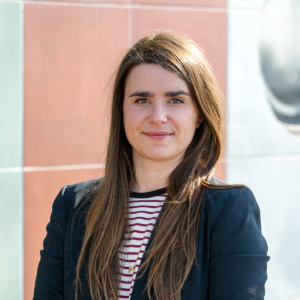Happy New Year!
We hope you had a restful and restorative holiday season, and are easing into 2024 with grace for yourself and others! At Change, we started 2024 in Change U, our second annual internal training where we share our goals and aspirations for the new year and make plans to better support our clients and our team. We are grateful to dive back into this work in community with each other and with our partners, new and longtime, who share our vision. We look forward to seeing what impact we can make together this year.
Client News
The epidemic of isolation is one that has been disproportionately impacting Black women since long before the COVID-19 pandemic. For nine years, Essie Justice Group has worked to address this crisis by bringing Black women with incarcerated loved ones together in community, a critical, life-saving practice that also has the power to tend to systemic causes of isolation. For Black women, those causes and harms can be traced directly to the carceral system. Founder and Executive Director Gina Clayton-Johnson shared this deeply personal piece about Essie Justice Group’s work and the profound impacts that incarceration has on Black women with the Grio earlier this month.
“We needed to provide a pathway to putting governing power into the hands of the people.” According to Director Diana Colín, the idea for PIVOT, a “first of its kind” partnership dedicated to strengthening California’s power-building ecosystem and advancing racial justice by investing in year-round voter organizing, began in 2020. Between the onset of the pandemic, the conversations around racial justice, the Census and the general election, it became clear to participating funders and organizers that there was a need for deeper investment in power-building to advance structural reform beyond investments in voter engagement made every four years. Now, PIVOT has awarded $7 million to 14 organizations in multi-year grants that reflect the collaborative’s approach to building local infrastructure and strengthening statewide organizations. Learn more in a recent feature in Inside Philanthropy.
A new poll conducted by the National AAPI Power Fund shows that voters in California and eight battleground states fear that the aggressive, anti-China rhetoric – taken to the extreme by the former president in 2020, and sure to be used by Republican presidential candidates in 2024 to score political points – will continue to drive violence against Asian and Pacific Islander people. Alienating AAPI voters, a group that while not a monolith, is the fastest growing voting bloc, poses serious political threats to candidates who choose anti-Asian hate. Learn more in a new piece on the poll in the San Francisco Chronicle.
To meet the needs of our increasingly diverse population, all voters must have equal access and say in California’s future. That means making sure that everyone has the support and the resources they need to understand not only what’s on the ballot but also the voting process. But in our hugely diverse state, voters who use non-English languages face persistent hurdles. Late last year, Partnership for the Advancement of New Americans (PANA) and Asian Americans Advancing Justice-Asian Law Caucus (AAAJ-ALC) released a statewide roadmap for lawmakers and the secretary of state’s office to establish California as a leader in multiracial, multilingual democracy by providing comprehensive language assistance to large populations in languages beyond Spanish, Asian, and Native American languages and setting standards for translated ballots and election materials. Learn more in this opinion from PANA and AAAJ-ALC leadership in the Sacramento Bee.
For the past two and a half years, Equity Forward, a multi-sector movement to close the racial wealth gap in Santa Clara and San Mateo counties led by Silicon Valley Community Foundation, has convened a group of public and private higher education institutions to understand and act collectively on the role of higher education to address the racial wealth gap. Members of the Equity Forward Anchor Network focused on higher education recently contributed this blog post about their essential work to close the racial wealth gap in the region.
President Biden recently took to the pulpit at the historic Emanuel African Methodist Episcopal Church in Charleston, S.C., giving a speech touting his administration’s accomplishments such as enacting measures that cut Black childhood poverty in half. But according to Alicia Garza, Founder and Principal of the Black Futures Lab, whose Black Census Project is the largest survey of Black people in the U.S. of all time, Biden didn’t speak to the issues that matter most to a voting bloc essential to his reelection. Alicia explains: “That was clearly a pitch-perfect conversation for the constituency that was in that church…Even if he didn’t make that speech, those folks are gonna go and they’re gonna vote for him. The challenge that we’re facing this year is that there are a lot of people who are asking themselves, ‘Why should I show up?’” More in Politico Recast.
Data from the Black Census Project show that Black voters’ chief concerns include the economy, abortion access, safety against white supremacy and gun violence, and the right to vote. According to Black Futures Lab Deputy Director Kristin Powell, Black voters are frustrated that Biden and the Democratic Party “aren’t engaging them year-round and are ignoring a population that could truly deliver.” Read more CapitalB.

